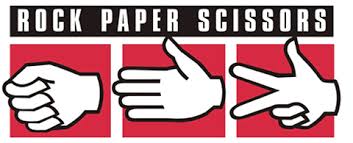NEGOTIATING WITH:
My two laws regarding negotiating are simple:
1. Don't even begin the process until you are armed with an advisor who is experienced and appropriately incentivized
and
2. Don't counter if you can't walk away.
After three years as a Dad, my dimensional understanding of negotiating has broadened into recognizing the need to eliminate risk from the outset. This principle can be witnessed in our home quite regularly as I often pre-select two or more equally appropriate options and allow our daughter to choose one...or pre-select one option out of two that I know my daughter will find extremely undesirable. The result: a win-win 100% of the time. Slanting the field to my advantage is necessary. I can't win otherwise...and if i do, it's a Pyrrhic victory due to the loss of time and stress that ensues.
You’ve heard it before: “Negotiate like a 3 year old.” ...or is it “Negotiate like a 2yr old”? Or is it "Don't negotiate with a 2 yr old"? Regardless... dealing with young children can be difficult to say the least but insightful. They are irrational. They won’t take “No” for an answer, They can have an unlimited supply of whining and tears to gradually wear you down and their idea of compromise is re-wording the same demand over and over. (I've faced clients like this as well). These tactics reveal themselves both in daily "transaction interactions" and in the games children play themselves as well.
Take, for instance, Rock Paper Scissors. I thought about how this (like many other things my daughter has reintroduced me to) might translate into my line of business….and here’s what I came up with:
A parallel application I call "Bully Beg Buy" which can be utilized upon entering into negotiations that are already in progress with two or more parties competing for the same thing.
BULLY (A.K.A. ROCK)
Bullying functions when one party inflicts fear on another and fear is a great motivator…not the best, but certainly stronger than calculated gains due to the fact that it breaks through the walls of logic and plays heavily on the emotional reaction to imagined physical or social suffering. The instinct to survive socially or even politically within one's professional circles can be the weaker party's Achilles' heel. The flip side of that coin, however is that in negotiations or transactions that involve more than just two parties, bullying as a means to attain an advantage over multiple parties may not work so well. For example: One party pressuring another party to sell to them. In this simple bilateral negotiation, the selling party may be under duress to sell to the bullying party and so the tactic works…but add to this equation another variable such as an additional interested party or a trilateral (or tripartite) agreement upon which the bilateral negotiations rely. The later party’s consideration supporting the promise of the other two parties, (a contingency by definition) is imperative. In a case such as this or in any where there are more than two parties, it is unlikely that the bullying will have an equal impact across degrees of separation. I have seen this diluted pressure often result in the third party coming to the table out of undue influence... but eventually finding and exercising a way to circumvent the transaction via a loop-hole or by intentionally causing some contingency to fail being met prior to closing. “Bully” is vulnerable and that vulnerability resides, predominately, on an emotional level…which brings us to the power of "BEG".
BEG (A.K.A. PAPER)
Consult any management or social psychology reference and you will learn that people like talking about themselves. It’s because of the developed ego and sense of self in which we take great stock. People like to feel important. The #1 word used in every language around the globe is “I”…it is for this reason that, all things being equal, when one party (in the case mentioned above: the selling party) is presented with an opportunity to feel strong, important, powerful and/or benevolent, they will most often choose that over the opportunity to feel like a victim. Especially if a negotiation is already in progress and the pressure of "BULLY" is being felt. It’s in this instance that the bullying has likely been taking an emotional toll on the selling party and "BEG" not only offers some relief but also presents a safe exit.
BUY (A.K.A. SCISSORS)
Although "BEG" beats "BULLY", bullying and the desire for physical, social or political preservation are often outweighed by the desire for financial gain. After all, what good is money if your dead or worse…a social, political or business-world outcast? "BUY", however does beat "BEG" and it's benefit of making someone feel benevolent. Nothing makes most people feel more powerful, smart or strong than significant financial gain…remember, they can always imagine purchasing social or political collateral such as popularity and be a little benevolent / charitable with some of those large profits later.
Like Rock Paper Scissors, the trick to this method of negotiating relies heavily on two rather large assumptions. The first: that you know which hand all competing parties are going to throw (thus the arena defined as: negotiations already in progress) and two: that no two parties throw the same hand.

